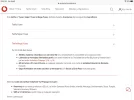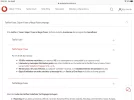- Time of past OR future Camino
- ?
Hello Everyone:
There have been quite a number of threads about SIM cards (which networks to use, where to buy them, cost, etc.), but for those like me that are not technologically savvy, I have not seen anything that explains what actually happens when you purchase and install a local SIM card. For example, I understand that you will now have a local phone number, so assuming you are in Spain, you would have a Spanish number. This has obvious implications for making/receiving telephone calls. The implications for text messages are presumably the same. I also understand that you receive a data package that makes browsing the web much more affordable than many domestic networks would charge for roaming. However, I hope that someone could help explain the following:
1. What happens with e-mails? Can you send/receive messages using your regular e-mail address? Is it a seamless process, or do you need to somehow install your e-mail address on the new SIM card?
2. Same question with apps: Are any apps that you already have on your phone (MAPS.ME, Booking.com, Kindle, etc.) still on your phone, or do you need to somehow download them again?
3. Is there anything else important to know?
Thanks in advance for any help!
There have been quite a number of threads about SIM cards (which networks to use, where to buy them, cost, etc.), but for those like me that are not technologically savvy, I have not seen anything that explains what actually happens when you purchase and install a local SIM card. For example, I understand that you will now have a local phone number, so assuming you are in Spain, you would have a Spanish number. This has obvious implications for making/receiving telephone calls. The implications for text messages are presumably the same. I also understand that you receive a data package that makes browsing the web much more affordable than many domestic networks would charge for roaming. However, I hope that someone could help explain the following:
1. What happens with e-mails? Can you send/receive messages using your regular e-mail address? Is it a seamless process, or do you need to somehow install your e-mail address on the new SIM card?
2. Same question with apps: Are any apps that you already have on your phone (MAPS.ME, Booking.com, Kindle, etc.) still on your phone, or do you need to somehow download them again?
3. Is there anything else important to know?
Thanks in advance for any help!
























